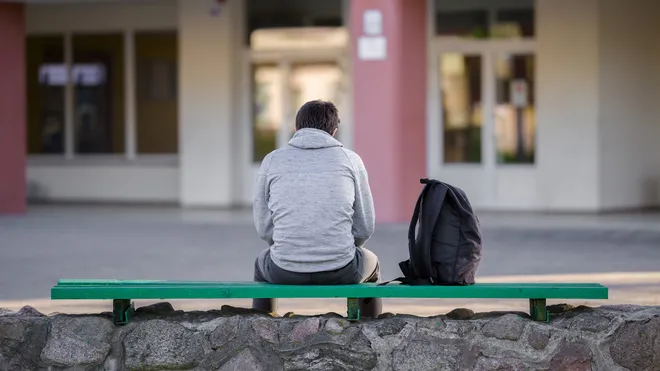The World Health Organisation (WHO) has raised an alarm on a silent global epidemic of loneliness, saying 871,000 die from it annually.
In a report released on Monday, WHO revealed that loneliness is now considered a serious public health threat.
According to the report by the WHO Commission on Social Connection, an estimated one in six people globally is affected by loneliness, which, along with social isolation, is linked to a range of severe physical and mental health risks, including stroke, heart attacks, diabetes, depression, anxiety, and even suicide.
Co-chair of the WHO Commission and the United States Surgeon General, Dr. Vivek Murthy, described loneliness as “a painful, subjective feeling that many of us experience when the relationships that we need do not match the relationships that we have.”
He differentiated this from social isolation, which he defined as “an objective state of having few relationships or interactions.”
The commission’s findings highlighted the staggering toll of disconnection, especially among vulnerable groups.
One in three older adults and one in four adolescents are said to be socially isolated, with the effects felt not only on personal well-being but across society.
“Lonely teenagers are 22 per cent more likely to achieve lower grades than their peers,” the WHO report said. “Lonely adults face greater difficulty finding or keeping a job.”
Beyond individual struggles, the economic implications are significant. The commission estimates that the costs to healthcare systems and lost productivity due to social disconnection run into billions globally.
The causes of loneliness and social isolation are wide-ranging, including illness, poor education, low income, lack of social opportunities, living alone, and increased dependence on digital technologies.
Dr. Murthy warned that although digital communication offers benefits like video calls, it can never fully replace in-person interactions.
“For millennia, humans have communicated not only through words but also through facial expressions, body language, tone of voice, and silence,” Murthy said. “These forms of communication are lost when people rely solely on mobile phones and social media.”
In light of this growing crisis, the WHO pointed to Sweden as a model for combating loneliness at the national level.
According to Swedish Social Minister Jakob Forssmed, the country has introduced a comprehensive national strategy that sees loneliness as a societal problem rather than just a personal issue.
“We are taking active steps to promote social connection in shops, restaurants, neighbourhoods, and clubs,” Forssmed said.
In a bold move, Sweden plans to ban mobile phones in public schools and will soon issue prepaid activity cards to children and teenagers, which can only be used to book group leisure activities.
Forssmed noted that these measures have been shown to boost social interaction, reduce cyberbullying, and improve sleep quality among young people.
“Children are often frustrated when their parents are constantly distracted by their phones,” he added.
The WHO commission concluded that while technology has its advantages, more emphasis must be placed on creating spaces where face-to-face interaction is encouraged.
“Having places and spaces in our life where we can interact face to face with other people without the distraction of technology is very important,” Murthy said.
As the world continues to grapple with the effects of loneliness, WHO urged governments, communities, and individuals to take meaningful action before the social epidemic claims even more lives.




